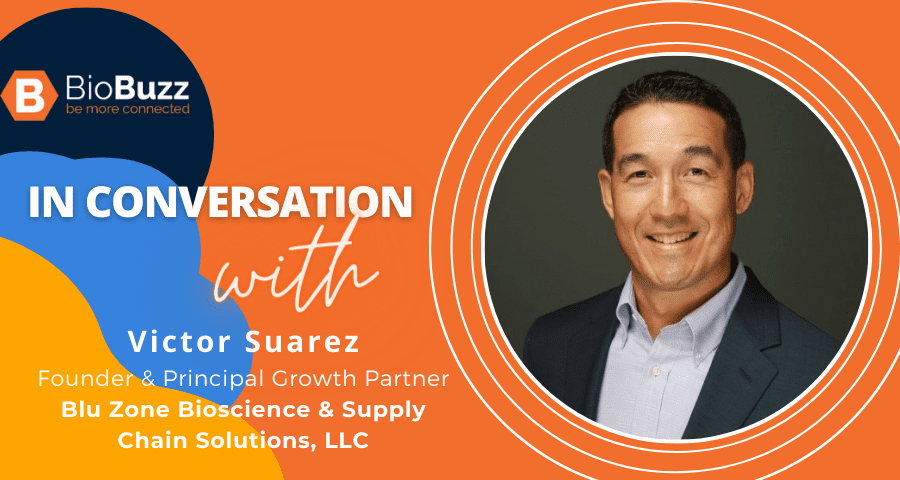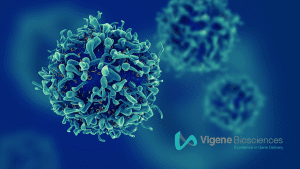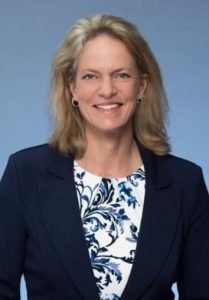
In Conversation with Colonel (Ret) Vic Suarez, BioBuzz Industry Advisory Board Member and Founder & Principal Growth Partner of Blu Zone Bioscience & Supply Chain Solutions, LLC
By Arielle Garcia | November 28. 2023
| This article is part of our In Conversation series, one of our ongoing People & Places Features. Go indepth with some of the most interesting people making impact across BioBuzz’s growing biohubs. |
In this conversation with Col (Ret) Vic Suarez, we discuss his storied military career, medical logistics, being introduced to life science advanced product development with the first anthrax vaccine, personal mentorship by an industry icon, his work on Operation Warp Speed, what military vets should look to into life science careers, and his (non) retirement job launching Blu Zone Bio.
About Blu Zone Bio
Blu Zone Bio serves biotechnology and life science supply chain organizations by expanding domestic biomanufacturing through effective public-private partnerships, strategic alliances, and business development. We are a growth partner and program accelerator dedicated to optimizing performance in four focus areas: accelerated and quality-driven product development, supply chain optimization, biosecurity preparedness, and workforce growth. We are committed to helping our partner clients become first-in-class within their niche, ultimately powering the BioHealth ecosystem. Blu Zone Bio’s mission is to improve human health and the quality of life through enterprising organizational and technological advancements.
About Vic Suarez
Colonel (Ret) Vic Suarez, U.S. Army, recently retired after 27 remarkable years of active-duty service as a Biotechnology Advanced Developer and Health Care Supply Chain senior leader. His military career was marked by two distinct paths: one in life science supply chains and another in biotechnology advanced development. Vic attended specialized military training in medical logistics and operations and received his first assignment at the 82nd Airborne Division in 1996 and then the 7th Special Forces Group (Airborne) in 1999.
Little did he know then that the experience he would gain there would set the stage for the rest of his career. Vic was first introduced to vaccine programs when managing the initial anthrax vaccine inoculation program at Fort Bragg, NC (now Fort Liberty). Highlighted in his work portfolio, the DOD anthrax vaccine program played a significant role upon his arrival at Fort Detrick, Frederick, Maryland, in 2005. That particular anthrax vaccine was licensed by Maryland’s very own Emergent BioSolutions and served as a precursor for a successful career in life science advanced product development, medical acquisition, and supply chain program management.
Why should veterans choose a career in Life Science?
Well, I’m really excited about this opportunity to be on the BioBuzz Advisory Board so that I can reach out to veterans and have them consider careers in life sciences. I know it can be very intimidating for a lot of veterans who may have had a specialty outside of life sciences, but I want to help break down the barriers and fear of the unknown to really help connect veterans and retirees to careers in life sciences. You have skills, you have leadership, you have values and principles that are needed in the life sciences to advance products for human health. I want veterans to realize that they have the leadership, trust, and reliability that companies need right now. I want to help them realize that with some on-the-job training and familiarization, they will thrive in roles such as cGMP manufacturing, supply chain, quality assurance, and project management.
It wasn’t until 2006 that Vic met his biotechnology and career mentor, Dr. Wayne Hockmeyer PhD, U.S. Army Lieutenant Colonel (Retired), immunology scientist and Vietnam War Veteran who often goes by Wayne. Dr. Hockmeyer was invited as the guest speaker for a professional development event at Fort Detrick, where he talked about his transition out of the military and how he founded MedImmune, Inc. in 1986 (now a subsidiary of AstraZeneca) and grew it into a $16B commercial-stage biopharmaceutical company with a robust infectious diseases and oncology portfolio.
Almost immediately after leaving the military, Dr. Hockmeyer received a small venture-backed investment to start his company. Not only did his company become wildly successful, but it is also became one of the reasons Maryland has a growing and thriving biotech ecosystem along the I-270 corridor. Vic was inspired by Dr. Hockmeyer’s story and fearless leadership example: he took a lot of entrepreneurial risks, he quickly learned on the job how to be business savvy, and he applied emerging biotechnologies such as monoclonal antibody therapeutics that would prevent millions of premature infant deaths worldwide with Synagis, one of the first antibody treatments to prevent respiratory syncytial virus. Soon after Wayne and Vic met, Wayne became his mentor and has since taught him the business and leadership side of the industry for the past 17 years.
Throughout Vic’s 27 years of military service, he gained invaluable experience that led to the realization of his true life’s purpose. Vic had the opportunity to contribute to Operation Warp Speed, which was a monumental public-private partnership aimed at accelerating the development, manufacturing, and distribution of COVID-19 vaccines, therapeutics, and diagnostics. His work on the industrial mobilization of vaccine development during the COVID-19 pandemic underscored his desire to make a large-scale impact.
Leaving the military was not a decision Vic made lightly. It was a matter of whether he could continue to do what he believed was his life’s work, which was to solve challenging problems and advance technologies to improve human health and the quality of life. The decision came down to where he could make the most considerable impact. It became clear to him that his future lies on a different path. Vic chose to transition out of the military to become an industry leader to accelerate the advancement of life-saving technologies and grow the biomanufacturing industrial base, including growing and transforming its much-needed workforce.
What programs or resources helped you during your transition out of the military?
One of them was The Commit Foundation. It’s a tremendous organization. This organization requires a recommendation to go and a screening process if you’re accepted into the program. They apply a lot of resources to help you think through your transition, but how they’re different from other transition programs is that they’re not focused on trying to get you a job. They’re focused on helping you through a transition to define that new life you want to create out of uniform. And so The Commit Foundation has a very deliberate process that the participants go through. They assign you an executive coach, and you go through about 10 different modules. It’s a self-discovery process that lasts anywhere from 9 to 12 months. There’s a lot of self-reflection, journaling, and discussions with your executive coach on a monthly basis. You talk about building the life you want to have post-military. They also fly you out to a workshop, where you meet the other program participants and industry people who want to help you through your transition. Going through The Commit Foundation in the last year was very helpful for that kind of self-discovery about what you want to do in your next chapter. It wasn’t fixated on just getting you a job. This was much deeper than that.
During Vic’s transition, he realized how fortunate he was to work in the industry and grow his network for the last 15 years of his military career. His early adoption of LinkedIn allowed him to establish a robust network online, providing him with an unforeseen advantage. The challenges that typically plague service members were of no concern since he spent years building his network with people from all aspects of the industry: academia, federal agencies HHS/ASPR/BARDA, CDC, NIH/NIAID, FDA, think tanks, and private companies.
What was the most valuable lesson you’ve learned?
The most valuable lesson that I learned early on in my military career was to network. You have to go in realizing that, eventually, every military member will have to transition out. Whether you do 5-10 years or you do a full 20-30, remember that you need to stay up to date on what’s going on in the civilian sector. You need to develop friends and networks on the outside, as well as keep current on global and professional events in your specialty areas. Join those professional societies. Go to those symposium conferences on a regular basis. Take leadership roles in those organizations. Don’t wait to be a civilian to all of a sudden start from zero. I tell people that you don’t get on the autobahn going zero. You get on the autobahn going 60-70 miles per hour so that you can easily merge into traffic that’s going 90 miles an hour. You can’t start from zero, so you’ve got to start well in advance. I would tell veterans that they need to start 5-10 years out, not two years out.
Fresh in retirement, Vic’s plans took an unexpected turn. Instead of taking time off, he launched Blu Zone Bio. He jokingly states, “People ask me, how’s retirement going? And I’m like, well, I’m failing at retirement because I’m working too much.” After a series of calls from various organizations inviting him to join their boards and further encouragement from his mentors, he immediately began setting up his consulting and growth partner advisory business. Vic realized that he was an entrepreneur at heart, someone who thrives on calculated risks and innovative problem-solving with a deep-rooted aversion to the status quo and bureaucracy. The entrepreneurial path was a natural fit.
What advice do you have for other veterans who are in the process of transitioning out of the military?
Continue to be curious and seek to understand things. Doing the challenging things that a lot of people aren’t willing to do, allows you to actually be prepared for opportunities. So having that mindset where you don’t shy away from big challenges really prepares you for when opportunities come your way. It’s also important to understand yourself. Do a lot of self-reflection and do the reading. It’ll make it easier for you to be self-aware and to be a genuine person and then easier to build trust with other human beings. And so one of the things I tell my leaders is, “If you really want to be an effective leader in the military or in civil society, you’ve got to be able to look at people as human beings first and second to that as a soldier or as a scientist or whatever professional role they are in. Never forget that they’re human beings first. Once you establish that and you look through the prism of them as humans, your decisions, how you treat them, how you speak with them, and how you mentor them turn into a longer-term investment on both ends.
Although Colonel (Ret) Vic Suarez’s military career has ended, his journey as a Founder and Industry Leader has just begun. His immediate calling is as a senior advisor for a coalition of eight companies, one of which is a Fortune 8 company, that is dedicated to expanding and increasing domestic biomanufacturing and the security of the domestic and allied partners medical supply chains.
Along with the growth of biomanufacturing comes the need for a workforce. As a member of the BioBuzz Advisory Board, Vic is helping the industry tap into the veteran talent pool, as well as helping veterans transition to Life Sciences career fields. Blu Zone Bio is currently accepting growth partner clients and board advisory roles on retainer contracts, including equity and capture fee options. All business inquiries should be sent to [email protected].
- About the Author
- Latest Posts
Arielle Garcia is originally from Pittsburgh, PA. She is a United States Air Force veteran and current student at Johns Hopkins University pursuing a Master of Science in Bioinformatics.
Arielle moved to Baltimore to participate as a Nucleate Activator 2023 Cohort with the venture team 4D Genomics. The Activator program is designed to equip the next generation of bioentrepreneurs with the skills, knowledge, and confidence to take their ideas from lab-to-market. 4D Genomics did exceptionally well, taking home two of the five awards in the DEI and High Impact categories.
Although the Activator program is over, Arielle knew she wanted to continue being in the entrepreneurial space. The XYZ provides a platform to highlight bioentrepreneurs that are impacting the community, both locally and globally. She is looking forward to amplifying the voices of innovators and displaying the diversity of life science start-ups in the BioHealth Capital Region.








